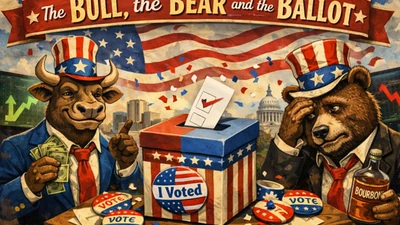Today’s report on durable goods came in with a minor dip, and while Wall Street yawned, investors paying attention know this isn’t something to brush off. Durable goods are the backbone indicators of where business confidence stands—companies don’t buy heavy machinery, trucks, or manufacturing equipment if they’re worried about tomorrow. When those numbers tick down, it’s an early warning that growth is stalling out.
Now, you’d think that would be enough to get Jerome Powell and the Fed off the sidelines. After all, the American economy has endured two years of “higher for longer,” and the consequences are stacking up: strained credit, tight liquidity for small business, and families putting off big purchases. A quarter-point cut isn’t radical—it’s simply common sense. But Powell, true to form, seems more concerned about keeping up his image as the inflation hawk than about recognizing the real damage being done.
From a conservative investor’s seat, the lesson is clear: Washington can talk all it wants about a “resilient economy,” but when durable goods soften, that resilience looks more like stubbornness. If Powell won’t nudge rates down even a fraction, we risk grinding business activity to a halt just to prove a point.
The irony here is rich—lowering rates modestly would actually strengthen the free market by encouraging investment and breathing life into the very sectors that drive American productivity. Instead, Powell drags his feet, leaving investors and entrepreneurs to play defense while the Fed fiddles.
For now, I’m watching the market’s reaction carefully. The dip may be minor today, but if Powell keeps ignoring the signals, don’t be surprised when that “minor” tremor turns into a more serious rumble.










